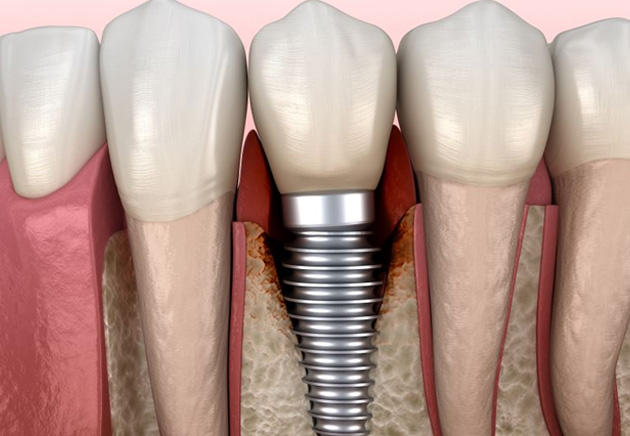Dental Implant Failure & Salvage Pittsburgh
Get Your Smile’s Health Back on Track
Dental implants are successful in the vast majority of cases, so when you get your prosthetic teeth, you can look forward to many years of healthy smiles. However, it must still be admitted that, in rare cases, dental implant failure can occur. If you ever believe there is a problem with your new teeth, do not hesitate to contact our Pittsburgh team. We will assess the situation and do all we can to get things back on track.
Why Do Dental Implants Fail?

When dental implants fail, it is often due to a condition known as peri-implantitis. This is an infection that occurs when harmful bacteria accumulate beneath the gumline and start to attack the tissue around an implant. Eventually, the damage can become so bad that the implant no longer has a reliable base of support.
Other potential causes of dental implant failure include:
- Underlying medical conditions, such as certain bone diseases or types of cancer.
- Physical trauma, possibly due to an accident or long-term teeth grinding.
- Failed osseointegration (failure of the jawbone to form a strong bond with the implant).
Symptoms of Failed Dental Implants

Dental implant failure can happen at any time, whether it is weeks, months, or even decades after the initial placement surgery. That is why you should always be alert for signs that something is amiss. Here are some symptoms to look out for:
- Unusual or severe pain. After you heal from your surgery, your implants should not cause any pain. Severe or prolonged discomfort is a red flag.
- Signs of infection. Pus, swelling, redness, and gum recession could all point to peri-implantitis.
- Difficulty chewing. After you adapt to using your implants, it should be easy for you to consume a wide variety of foods. Challenges in this area deserve professional attention.
- An implant feels loose. This may be a problem with the implant itself or the restoration (crown, bridge, or denture) that is secured to it.
How Dental Implant Salvage Works

You should schedule an appointment with us as soon as you notice something is wrong with your implants. The earlier you receive care, the more likely it is we can handle the situation via conservative and relatively inexpensive means.
When you visit us, we will conduct a thorough examination before we recommend your next steps. In some cases, a simple solution is best; you might need a new restoration or a course of antibiotics. In other situations, more extensive care is necessary. If there is no way to save your current implant, we might have to surgically remove it. After a healing period and any necessary additional care, you may become eligible to receive a new one.

